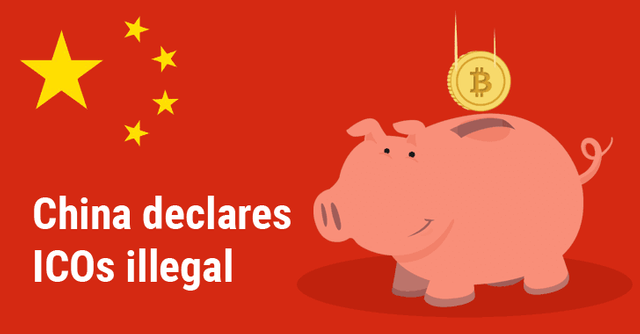Initial Coin Offering Continutes to Generate Distaste

(Notice: This is my first article on Steemit but a xy. in Slovakia)
The focus of our last article was China, where headlines first announced a complete stop to ICO(Initial Coin Offering) only to subsequently reveal the government´s decision to bluntly abolish cryptocurrencies in the country. In due course, all exchange markets were sidelined and forced to put an end to their operations, with the exception of the biggest players that are expected to shut down late October. Direct consequences were quick to follow – the markets endured 2 days of relative stress, yet the price of Bitcoin and most cryptocurrencies wandered back to its original position. Pundits expected the relocation of a substantial part of trading activities to decentralised exchanges of the likes of LocalBitcoin, just to name the largest of the kind. Yet, data shown in the graph below prove these assumptions wrong. Although LocalBitcoin evidenced an overall growth in the volume of trading, the uptick found itself far from being eligible to be classified as a complete remotion to decentralised exchange markets. Further developments promise to be interesting. It did not take long for news of a planned uplift to the general ban on exchanges to emerge. The underlying reason for such exciting prospects is the approaching date of the Communist Party ´´elections´´, scheduled on the 18th October.
Viewed from a sober perspective, China has not done anything wrong after all. The country has long been radiating mixed signals with a destabilising effect on confused markets. At least we have gotten rid of the stress inducer this way. Similarly, measures pinching salt to the wound of ICO are not entirely abominable, as I personally view this concept as a bubble soon ready to be burst. At the bottom, China poses as a good pedigree for other countries that are yet to place this issue on a serious note.
South Korea comes right after China in halting ICO, while the idea is also being flirted with by regulators in the US. ICO remains a highly risky concept as investment decisions often rely merely on the web´s appeal or a company´s vision. Taken from an opposing perspective, South Korea took the torch from China in terms of Bitcoin´s trading capability, which is significantly risk averse in its current position. Ubbit, an exchange, is even creating new opportunities for investors who will have the opportunity to buy up to a variety of 111 different cryptocurrencies on the market. So far, the predominant majority of exchange markets offered a maximum of 5 different cryptocurrencies other than Bitcoin. Look only a few dozen kilometres further down the map on the isles of Japan and you will find a still operating ICO, however exchange markets continue to be heavily regulated. Even before launching trading activities, each and every exchange must fulfil several criteria ranging from the administration of trading accounts to server protection and security in order to obtain a licence permitting the operation of the exchange.
Japan would also like to see the introduction of its own virtual currency, J-coin, expected to hit the markets before the launch of the Olympic Games in 2020. This virtual currency is envisaged to operate in parallel to the Yen with a rate of 1:1. According to initial statements released by Japan´s Central Bank, the prevailing assumption amongst experts is that J-coin will be more traceable than currently popular and widespread cash savings which account for more than 70% of all financial transactions in Japan. We do not know yet whether the currency´s operation will be based on Blockchain. We have seen more pedantic precision from India where we are also witnessing plans for a state-emitted and state-controlled cryptocurrency very similar to Bitcoin. Despite the laudable intentions it is highly unlikely that they will transpose into reality. The specific reason for this predestined failure is the very nature of a centralised currency – without proper miners it is just a slow and expensive database.
To wrap up, I would like to bring to your attention that besides traditionally reviewing actual developments in the world of cryptocurrencies I am taking on a new venture in publishing articles that will carry an added analytical value and focus on a specific subject. The first article will aim its analytical lenses on the functional relationship between healthcare and Blockchain.
Do not let spacious plans for a new world divert your energies from saving what is left of the old.
- Winston Churchill